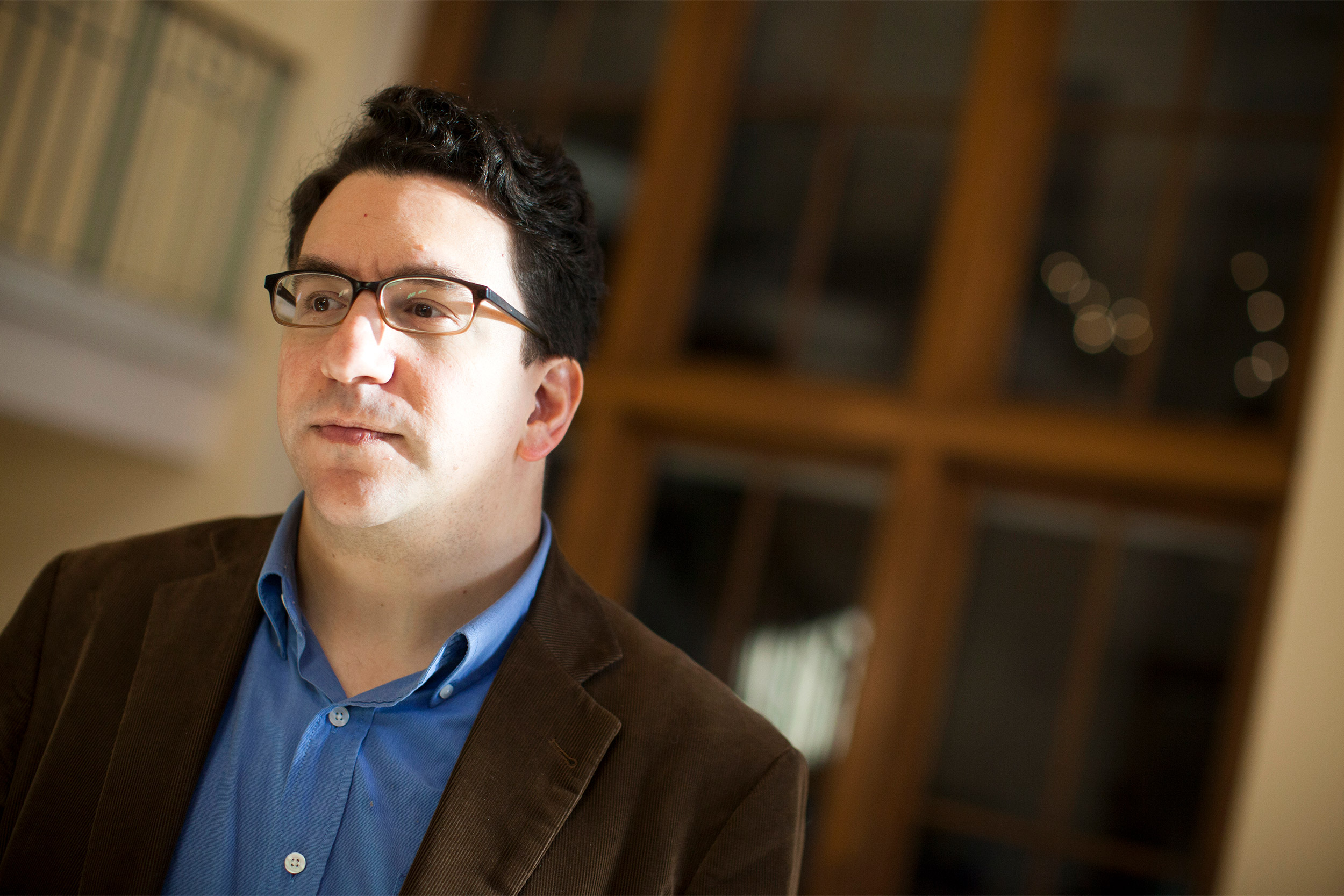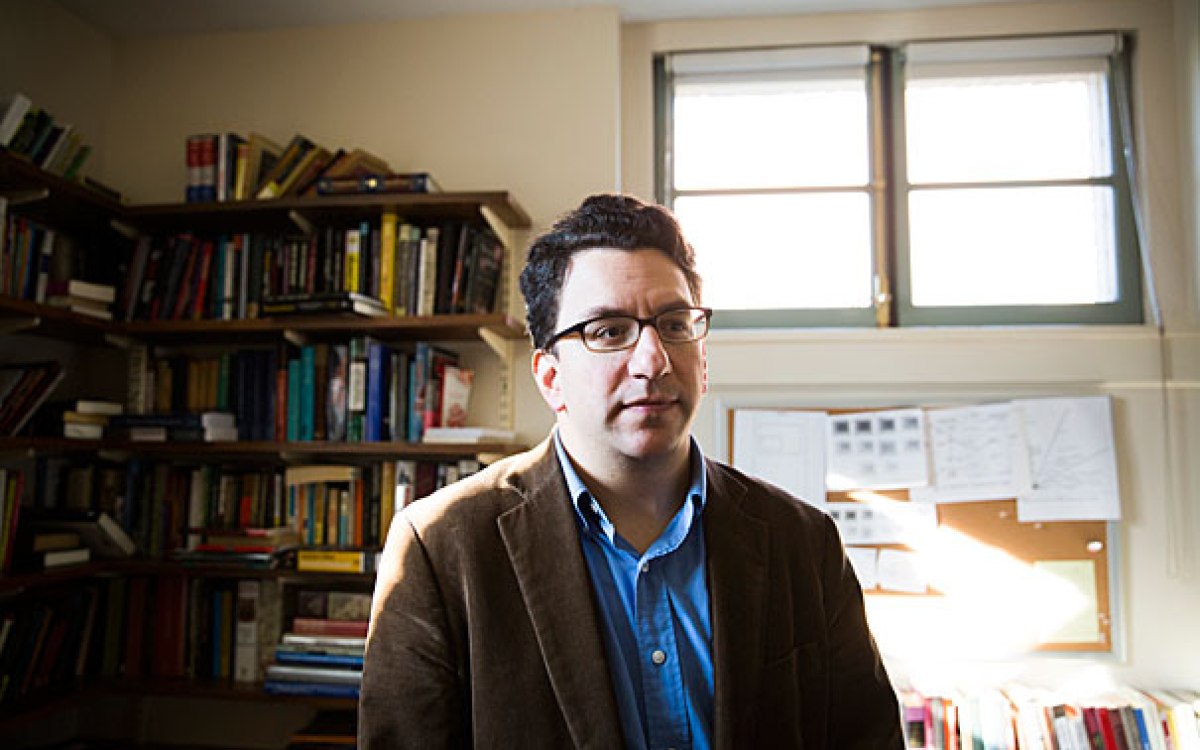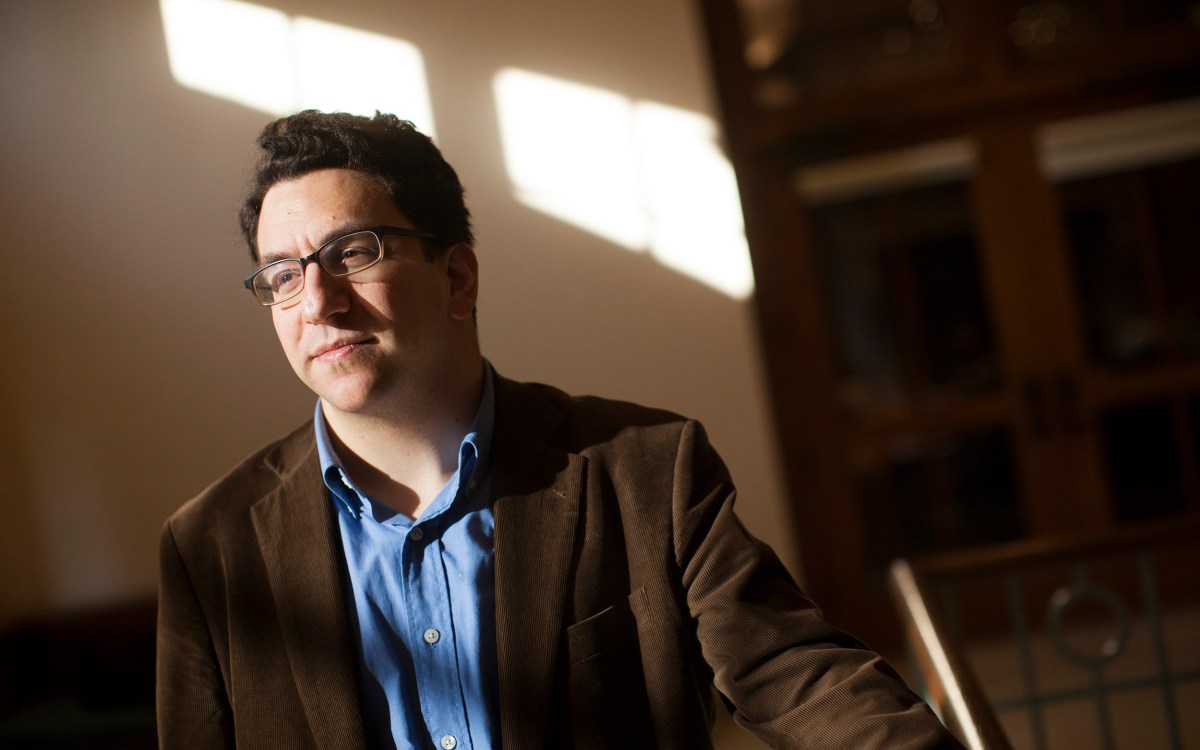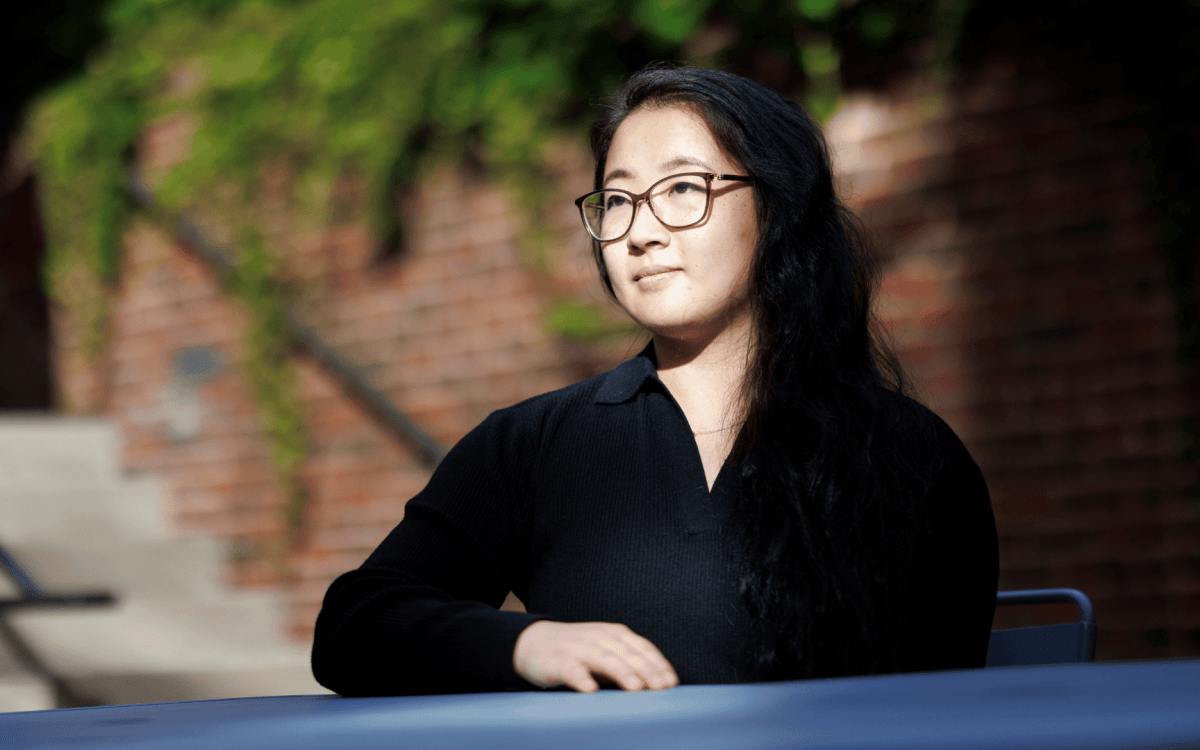
Professor and author Derek Miller discusses the origins and history of copyright law and the goals of the Music Modernization Act.
Stephanie Mitchell/Harvard file photo
Lurking in your favorite song, the law
Professor and author Derek Miller explains how copyright affects creativity
Derek Miller is the John L. Loeb Associate Professor of the Humanities in the English Department, where he studies links among the performing arts, economics, and law. “Copyright and the Value of Performance, 1770‒1911,” his first book, examines the origins and history of U.S. performance rights. The book was published in August, two months before President Trump signed into law the Music Modernization Act, which updated antiquated rules to pay artists more in the age of streaming.
Q&A
Derek Miller
GAZETTE: Why does a non-lawyer care about copyright law?
miller: I was struck by some intersections between theories of theater and music in the 19th century and lawsuits I’d stumbled upon in some research I was doing. The questions the lawyers were trying to think through — what theater and music were — were similar to arguments artists and composers and critics were having about the value of their work. It struck me very hard that declaring an ownership interest in a play or song implies a definition that might differ from how the playwright or composer thinks about the work they created.
What’s dramatic or what’s valuable about music? Which part does the law say you own? In creating performance rights jurisprudence, lawyers and judges were really separating out parts of the works that had legal (and therefore economic) value from those that did not. So that economically valuable definition of drama and music was the fundamental thing performance rights law created.
For example, in the theater, people were looking at the famous railroad scene, where someone is tied to the tracks by a dastardly villain twisting his mustache, a train is rushing on, and they escape at the last minute. The playwrights involved were Augustin Daly and Dion Boucicault. Boucicault has clearly copied Daly’s scene. The court said: “The characters are different, the relationships are different, and the dialogue is different. The only thing that’s the same is the setup, the actions that the characters take. Is that something that the playwright owns?”
And the judge decided, yes, the action of the play enacted by human bodies is fundamentally valuable and it’s part of the dramatic works that you own under copyright law.
GAZETTE: Your book ends at World War I, but jumping forward to the Music Modernization Act, how much has changed?
miller: A lot has changed a lot in the details of how the copyright system operates for the performing arts. For example, you now have the related but distinct area of recording rights, which first appear in 1909 in American law. But one important aspect of copyright that remains true to this day is that the law ends up being a negotiation through the court system among artists, lawyers, and the industry itself.
The Music Modernization Act brings the current state of music copyright law up to date for the modern era. Which is to say it’s accounting for the fact that most music is streamed online, through services such as Sirius, Spotify, or YouTube. The system for paying musical artists was broken, and the new law is designed to bring that system up to date and also to make possible a higher and a more flexible royalty system for composers and other artists.
The law always lags the market, at least a little bit. And as the law adapts, the new law solidifies and codifies the current state of the market, and makes the next phase of innovation harder.
GAZETTE: So the law has its own ideas about what constitutes value?
miller: Exactly. And this research demonstrates yet another way in which the industry is intimately related to what artists are doing. Other scholars have made similar arguments about, for example, how musical instrument manufacture affects composition. For instance, in Beethoven’s late piano sonatas, he’s playing with the upper reaches of the instrument available to him at the time. Beethoven’s driving use of the full range of the pianoforte keyboard is essential to the sound of those late sonatas. So instrument manufacture played directly into Beethoven’s compositional idea.
On today’s modern pianos you don’t get the same effect because the instrument has changed. How does this compare to copyright law? Copyright law is more subtle because the law’s effects are slower and apply to a larger market. But the law is no different from a musical instrument: It’s a formal constraint on creativity. So we can ask of the law the same questions we ask of other material conditions that define art-making. What kinds of art does the law reinforce because it makes them valuable and what kinds are being devalued and thus disincentivized?
What effects, then, will the music copyright law have on creative output? I can imagine people experimenting with more streaming, live performances, or being willing to put more material online because they’re confident that no matter how it gets out there they will see revenue streams if it does well. So perhaps there will be more interest in using Spotify or Pandora as content creators, just as Netflix and Hulu have become for film and television. Maybe we will see Spotify get more into production and be more interested in finding niche musical artists and genres to support. But who knows? I’m not suggesting that copyright law dictates how art changes, what kind of music will be good. But, by defining what’s valuable in music and how that value moves through the system, the law encourages music to move in certain directions and not others.
GAZETTE: Your book includes terrific moments of drama — in the court, not on the stage. Can you share a few favorites?
miller: One of the things that has been so fun about studying copyright and the arts is the intersections of very famous works running up against very confusing law. For instance, I talk about “Jesus Christ Superstar” by Andrew Lloyd Webber and Tim Rice and the way in which different religious groups performed the piece without a license — and then changed the ending because if you were a religious Christian you didn’t think Jesus’ death was the final word. They tacked the Resurrection onto “Jesus Christ Superstar.” They claimed they had a religious right to express their version of the story, and Webber argued that you can tell the story of Jesus however you want, just not at the end of “Jesus Christ Superstar.”
It’s an interesting intersection of First Amendment freedom of expression claims versus copyright law claims. Going back further, I found some fascinating lawsuits involving Gilbert and Sullivan, who, because they were British artists, had no claim to copyright in the United States. They worked through a series of lawsuits trying to assert a property right in the U.S. Their efforts ended with courts saying Sullivan’s music was not dramatic, specifically his orchestration or instrumentation, and particularly not in relation to the melody he wrote to Gilbert’s words.
Interview has been edited for clarity and length.







